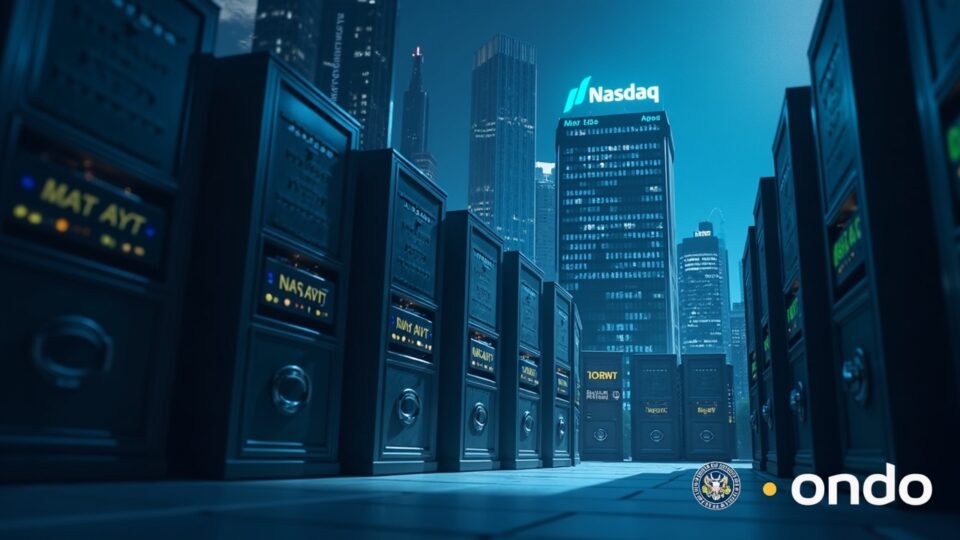Ondo Finance, a firm specializing in real-world assets (RWA), has formally requested a delay or rejection of Nasdaq’s proposal for tokenized securities from the U.S. Securities and Exchange Commission (SEC). The company argues that the stock exchange giant’s filing lacks crucial transparency. This information comes from an official letter sent by Ondo Finance to the U.S. regulator this Wednesday.
The core of Ondo’s objection lies in the plan’s reliance on non-public information. Specifically, how the Depository Trust Company (DTC) will handle the settlement of these assets on the blockchain. Nasdaq submitted its rule-change request on September 8, seeking to allow tokenized securities to trade alongside traditional stocks. However, Ondo warns that Nasdaq references non-public information, which implies differential access.
Ondo maintains that this lack of public detail “deprives other firms of a fair opportunity to comment.” The company, while supportive of the move toward tokenization, insists the regulator must prioritize open collaboration and transparent standards before making a final decision. Nasdaq’s proposal cannot be implemented until the DTC finalizes its own system, so Ondo sees no harm in waiting for greater clarity.
Will Stock Tokenization Be Left in the Hands of a Few Players?
Ondo’s intervention comes at a critical moment for the digital economy. Nasdaq’s proposal was published in the Federal Register on September 22. This initiated a 45-day review period for the SEC, which could extend until late December. The regulator’s decision will set an important precedent for how traditional assets are integrated into new financial technologies.
This debate is not happening in a vacuum. Multiple platforms are already moving forward with their own tokenized stock offerings outside the U.S. For example, Robinhood launched trading for European users, and both eToro and Kraken have announced similar platforms. Industry analysts, such as Galaxy Digital, have warned that this trend threatens the traditional dominance of exchanges like the NYSE, challenging the liquidity of conventional markets.
Ondo’s move underscores the tension between rapid innovation and the need for a level playing field. The company is asking the SEC to ensure that new systems do not unfairly favor large, established market players. The resolution of this request will directly influence the competitive landscape for tokenized assets in the world’s largest economy.

